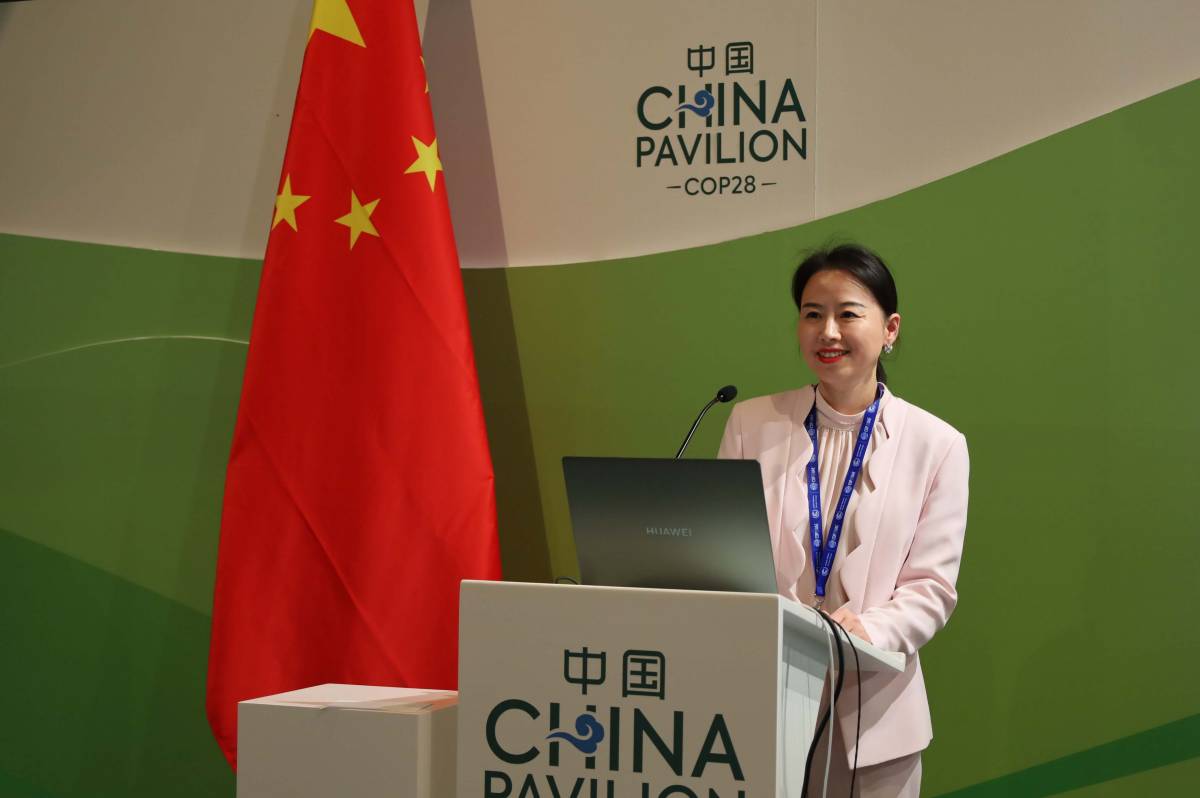- Freshippo helps peach farmers cut losses from natural disasters and increase revenue by $168/mu
- The grocer is also reducing the impact on Asian elephants from farmers cutting rubber
NORTHAMPTON, MA / ACCESSWIRE / December 27, 2023 / Alibaba Group
By Alison Tudor Ackroyd
Alibaba Group's high-tech grocer Freshippo showcased how technology can help farmers harness technology to combat climate change at COP28.

Technology can support farmers in addressing the effects of climate change by improving the choice of seed types, plant protection, harvesting and transport of food.
"Agriculture will continue to be heavily impacted by climate change, making it the common mission of global agriculture practitioners to address climate resilience in agriculture," said Shen Li, co-founder and Freshippo's head of sustainable development.
Shen spoke on the sidelines of the 28th Conference of the Parties to the United Nations Framework Convention on Climate Change (COP28).
Providing rapid response and maximum assistance to farmers to minimize their losses minimizes the impact of climate-related disasters.
When a hailstorm hit several peach farms in Beijing in 2022, they faced losses of over RMB6 million. Freshippo graded visually damaged peaches as "hail-damaged peaches" and processed those peaches into freeze-dried peach crisps.
This initiative helped farmers sell the hail-damaged peaches, reducing waste by 200 kilograms per mu and the peach farmers increased their income by RMB1,200 ($168) per mu.
"We hope to work together with Freshippo to help agricultural practitioners worldwide explore agricultural climate adaptation," said Fu Xiaotian, the China Food and Natural Resources Program Director of the World Resources Institute.
Protecting Elephants
Selecting suitable species to cultivate based on the prevailing climate conditions helps agricultural enterprises build climate resilience into farming, said Freshippo.
Freshippo showcased the zero-carbon honey it began to produce with the International Fund for Animal Welfare (IFAW) in March this year. The project aims to train villagers in the Xishuangbanna region of Yunnan Province, China, to keep bees and collect and sell their honey, reducing the impact on Asian elephants caused by farmers cutting rubber in the mountains and minimizing conflict between human beings and the elephants.
By using solar water heaters, installing photovoltaic systems, and planting eco-friendly economic crops, the carbon footprint of honey production is also fully offset. In addition, Freshippo will donate RMB10 from the sale of each bottle of honey to support the sustainable development of local communities.
"As the first zero-carbon honey produced in China for the conservation of wild Asian elephants, Freshippo is helping to connect elephants, local community members, and the whole society to address climate change," said Dr. Jimmiel Mandima, IFAW's Vice President of Global Programs.
Pumpkins in the Desert
Helping hold back the encroaching desert, Freshippo opened up a 200-mu organic base in the Ulan Buh Desert in Inner Mongolia. Last year, it harvested 400,000 pumpkins.
The pumpkin fields have expanded to 1,000 mu this year, and each pumpkin's growth can help prevent water and soil erosion, affecting about 43 square feet of surrounding soil.
"The agriculture industry plays an important role in carbon reduction as it is the industry most affected by climate change. The cases shared by Freshippo have brought greater attention to the industry's adaptability to climate change issues," said Zhou Fei, WWF-China's Chief Programme Officer.
Please refer to https://www.alizila.com/esg/ for additional information about Alibaba's sustainability efforts.
View original content here.
View additional multimedia and more ESG storytelling from Alibaba Group on 3blmedia.com.
Contact Info:
Spokesperson: Alibaba Group
Website: https://www.3blmedia.com/profiles/alibaba-group
Email: info@3blmedia.com
SOURCE: Alibaba Group
View the original press release on accesswire.com
